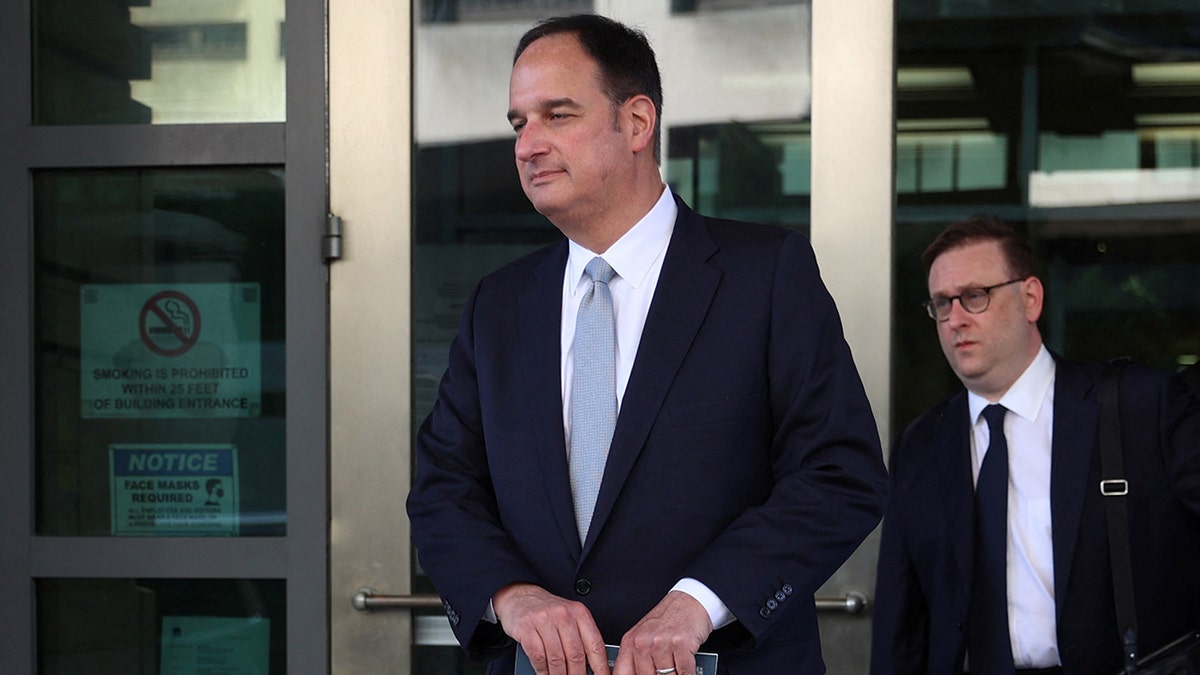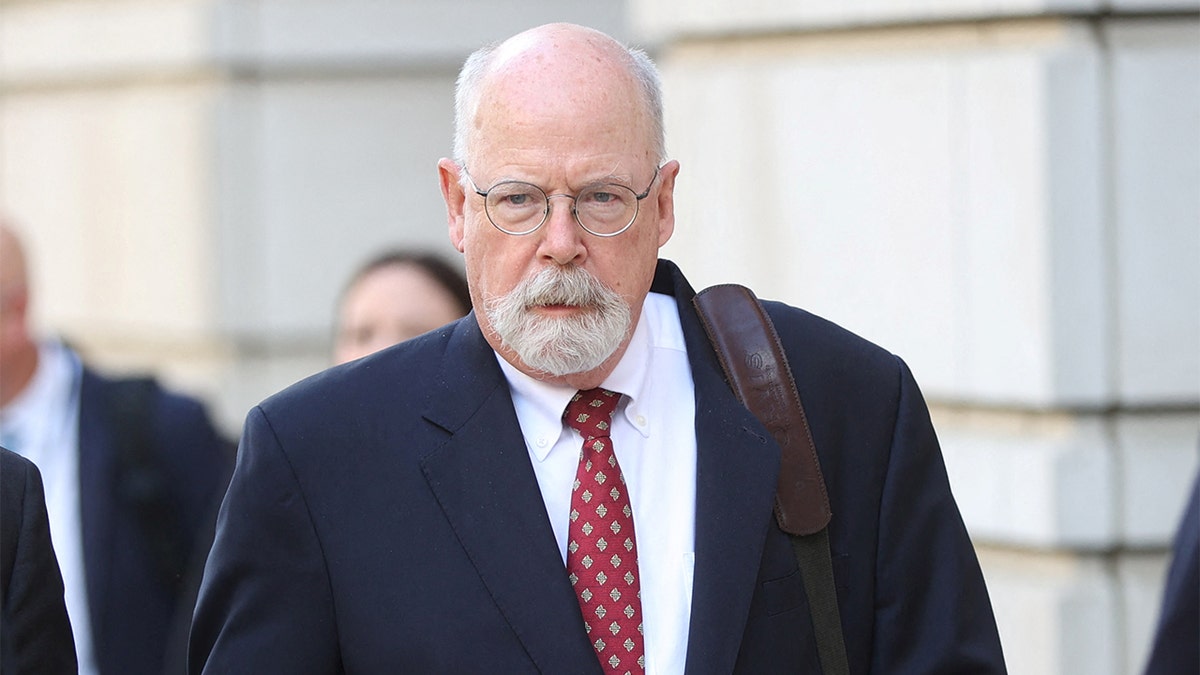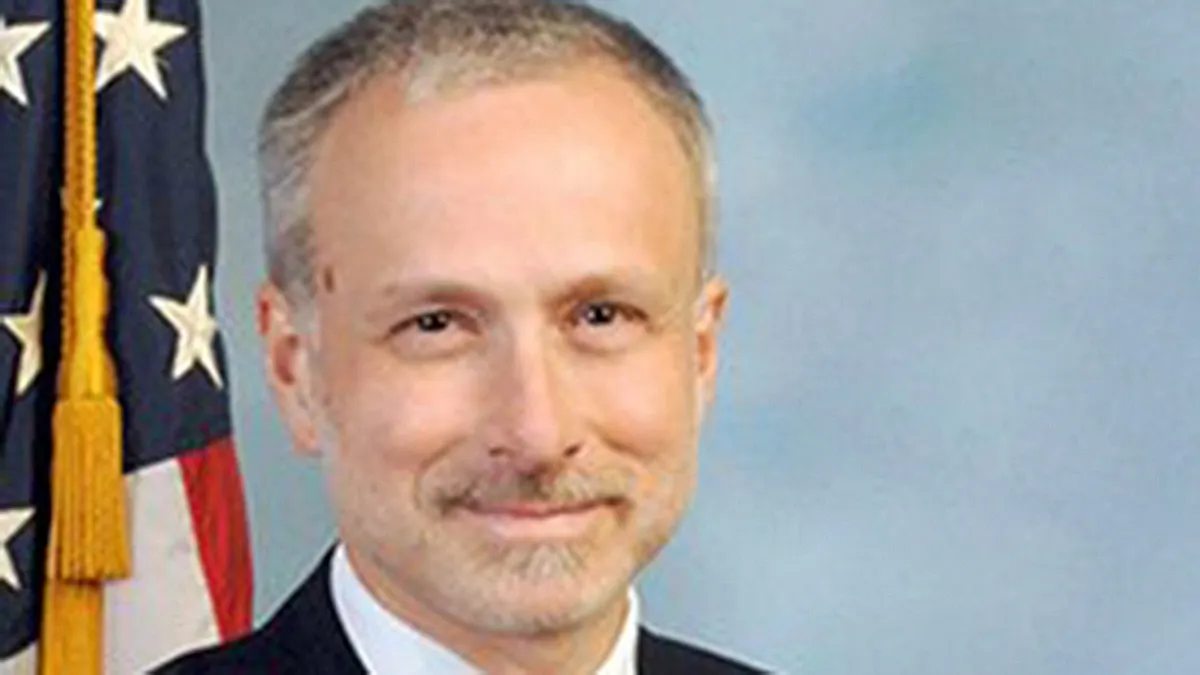Fox News Flash top headlines for May 26
Fox News Flash top headlines are here. Check out what's clicking on Foxnews.com.
Michael Sussmann said Thursday he will not testify in his trial in which Special Counsel John Durham alleges he made a false statement to the FBI when he claimed he was not bringing Trump-Russia allegations to the bureau on behalf of any client, while he represented the Clinton campaign.
Sussmann, speaking for the first time in the nearly two-week-long trial, affirmed to U.S. District Judge Christopher Cooper Thursday that he will not take the stand in his defense — despite leaving the door open for his testimony throughout the trial.
The defense rested Thursday morning. The government and defense are expected to deliver their closing arguments Friday.
This week, the defense filed a motion under seal which requested that if Sussmann were to testify, the judge would rule to block the government from asking him questions during cross-examination about materials submitted to the government before charges against him were filed.
SPECIAL COUNSEL JOHN DURHAM'S PROSECUTION OF MICHAEL SUSSMANN: EVERYTHING YOU NEED TO KNOW

Michael Sussmann, speaking for the first time in the nearly two-week-long trial, affirmed Thursday that he will not take the stand in his defense. (Reuters/Julia Nikhinson)
The materials in question were likely submitted to persuade the government not to move forward with its case, and its indictment of Sussmann.
Sussmann defense attorney Sean Berkowitz had said Sussmann’s decision on whether to testify depended on Cooper’s ruling.
But Sussmann's team made the decision not to testify. Cooper did not rule on the motion in open court Thursday. It is unclear if he ruled on the motion at all.
Cooper, on Thursday, read the jury their instructions ahead of closing arguments Friday morning.
"Your duty is to accept the law as I instruct you," Cooper told jurors, adding that their "function as the jury is to determine what the facts are in this case."
"You are the sole judges of the facts," Cooper said, adding that jurors should "not be improperly influenced" by any inherent biases, or political affiliations.
"The verdict in this case is your responsibility and yours alone," Cooper said.
Cooper explained that statements and arguments of the lawyers are not evidence, and neither were their questions, but rather just intended to assist in their understanding of the case.
Cooper reminded that Sussmann was charged "via an indictment," explaining that is simply "a formal way of accusing a person of a crime."
"An indictment is not evidence of any kind," Cooper said, stressing that jurors "may not draw any inference of guilt from it."
Cooper maintained that in order to determine the defendant guilty, the jury must believe the government proved their case "beyond reasonable doubt."
Cooper urged the jury to be "careful, honest, and impartial," and urged them to arrive to court on time Friday by 9:00 a.m. EST.
Durham has charged Sussmann with making a false statement to the FBI when he met with then-FBI General Counsel James Baker on Sept. 19, 2016. During that meeting, Sussmann brought two thumb drives and white papers which alleged a covert communications channel between the Trump Organization and Russia’s Alfa Bank. Sussmann allegedly told Baker that he was not bringing the information on behalf of any client, but rather as a citizen concerned with national security.
Sussmann has pleaded not guilty.

Special Counsel John Durham departs the U.S. federal courthouse after opening arguments in the trial of attorney Michael Sussmann. (Reuters/Julia Nikhinson)
One key piece of evidence for the government’s case against Sussmann is a text message from Sussmann to Baker on the eve of their meeting, in which Durham’s team alleges Sussmann put his "lie in writing."
The text message stated: "Jim — it’s Michael Sussmann. I have something time-sensitive (and sensitive) I need to discuss," the text message stated, according to Durham. "Do you have availability for a short meeting tomorrow? I’m coming on my own — not on behalf of a client or company — want to help the Bureau. Thanks."
Baker replied, "OK. I will find a time. What might work for you?"
Sussmann replied: "Any time but lunchtime you name it."
The government, before resting Wednesday morning, showed the jury billing records that they say prove Sussmann billed the Clinton campaign for his FBI meeting.

James Baker, who served as FBI general counsel, left the bureau in 2018. (Official FBI photo)
On one of Sussmann’s bills, dated Sept. 19, 2016, the Clinton campaign is listed as the client, the time is listed as 3.3 hours, and the memo states: "work and communications regarding confidential project." Other testimony revealed Sussmann charged approximately $800 per hour.
Durham’s team also produced a receipt from a Staples near Perkins Coie in Washington, D.C., from Sept. 13, 2016. On the receipt was a two pack of flash drives.
The prosecution alleged the receipt was included in an expense report from Sussmann, and the billing code on the report connects the expense to the Clinton campaign as the client.
CLICK HERE TO GET THE FOX NEWS APP
But during cross-examination of the government’s summary witness Kori Arsenault, a paralegal with Durham’s office, defense attorney Michael Bosworth noted that during meetings Sussmann had at the FBI in years prior, he would specifically make reference to the FBI in the bill's "memo" section.
Bosworth noted that the Sept. 19, 2016, bill only specifies "work and communication regarding confidential project."
"There’s no reference to the FBI in that entry is there?" Bosworth asked Arsenault.
"There is not," Arsenault answered.






















